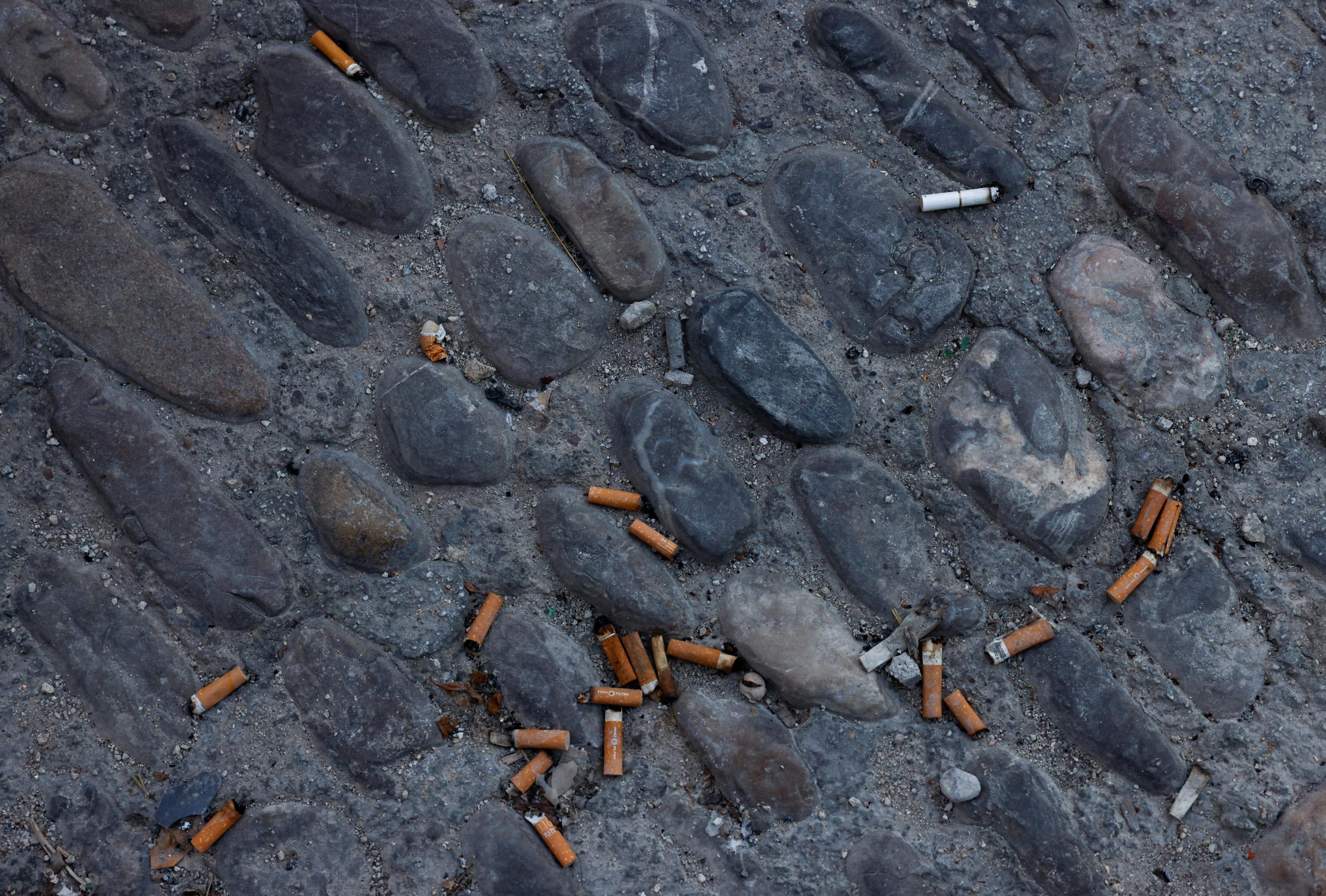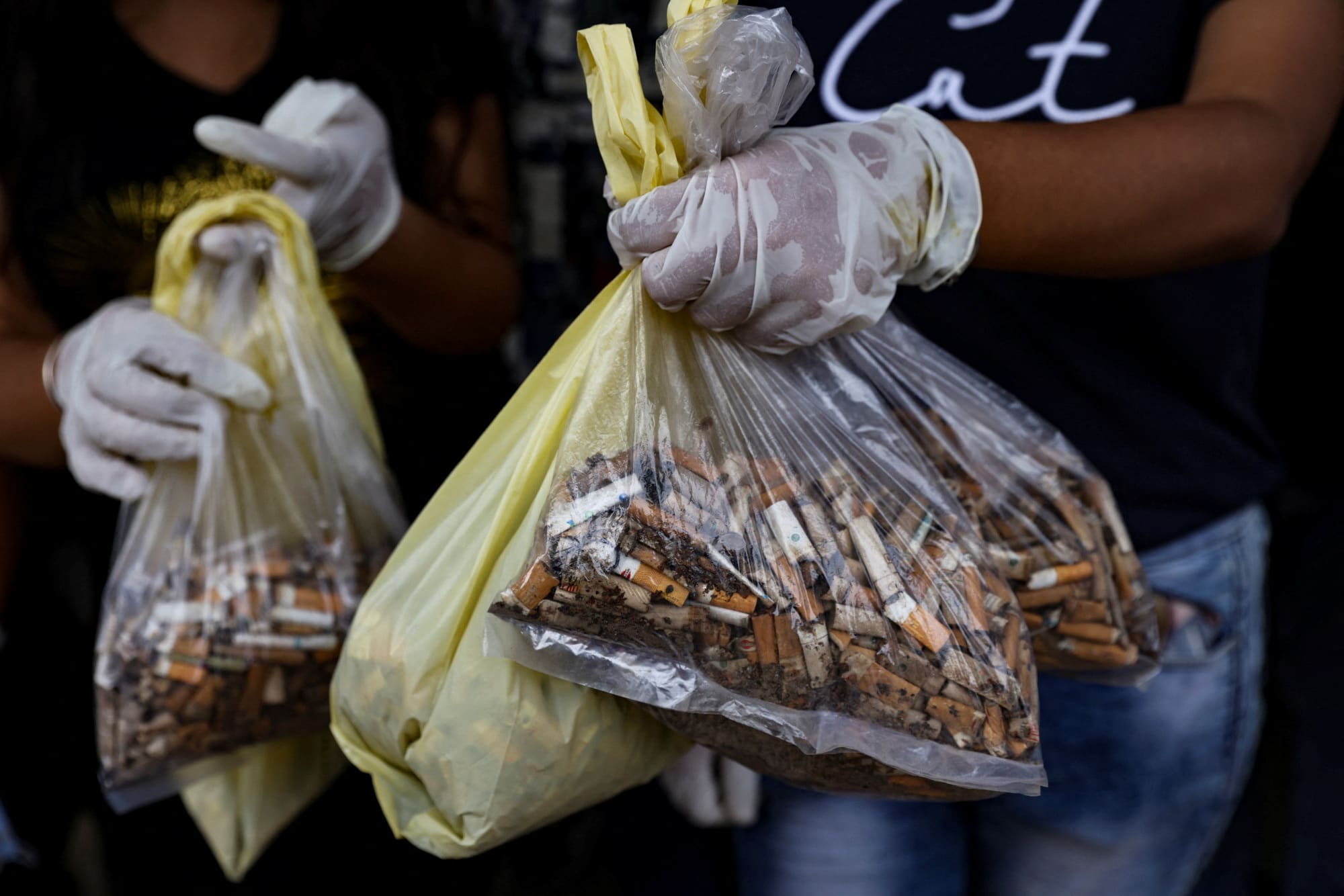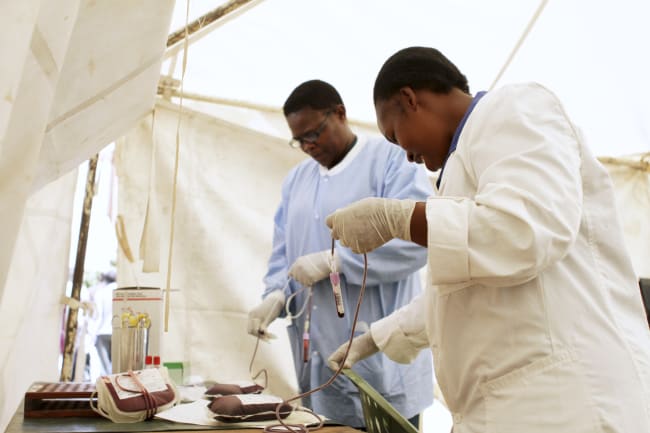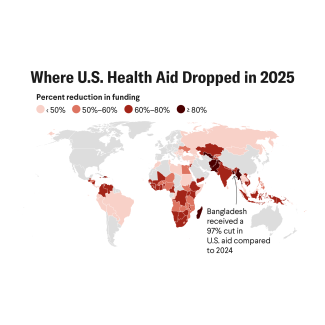Global plastic pollution ranks alongside climate change as a serious environmental threat. In fact, extracting and refining petroleum to make plastics and the incineration by which they are often disposed also contribute to climate change — these processes accounted for 4.5 percent of global greenhouse gas emissions in 2015. The plastic "garbage patches" found in the oceanic gyres of the Pacific, Atlantic, and Indian Oceans are by now well known. Microplastics less than 5mm in size have been found across all environments, including at the bottom of oceans and at the tops of mountains. Plastics are harming aquatic and terrestrial organisms, threatening the function of entire ecosystems, and making their way into human tissue.
The world cannot rely only on public messaging, recycling, or cleanups of existing plastic waste to stem this disaster. It needs to stop the production of harmful and unnecessary plastics, especially those meant to be disposed after a single use. No individual, single country, coalition of concerned environmental groups, or even transnational alliances can achieve this on their own.
Fortunately, the global community has begun seeking a coordinated and binding agreement to address this global threat.
Plastics are making their way into human tissue
The International Plastics Treaty
In March 2022, UN member states endorsed a historic resolution to "end plastic pollution." Under the auspices of the UN Environment Program (UNEP), planning has begun for an international legally binding instrument to address the full life cycle of plastic pollution, including its production, design, and disposal. That November, an intergovernmental committee planning this treaty met for the first time in Punta del Este, Uruguay. The assembly included UN member states, industry, nongovernmental environmental groups, and public health advocates, among others. From May 29 to June 2, 2023, the committee held another session at the headquarters of the UN Educational, Scientific and Cultural Organization in Paris, France.
After considerable debate and discussion on procedural issues, the delegates drafted a list of elements for consideration in the treaty, with an eye to addressing the full life cycle of plastics. According to UNEP Executive Director Inger Andersen, the treaty should address everything from how products are redesigned, packaged, and shipped; to measures for promoting the reuse, repair, and recycling of plastics; to support for waste pickers; to measures to address existing plastic pollution, such as discarded fishing gear.
The energetic discussions among delegates and observers set the stage for compiling a draft treaty document that will be the basis for negotiations at the committee's next meeting in Nairobi, Kenya, in November 2023. A subsequent negotiation is tentatively scheduled for Ottawa, Canada, in 2024. This two-year process, including intercessional work among delegates and observers, will ensure a collaborative and diverse dialogue among member states and stakeholders that will address this enormous environmental and health challenge.
Public health advocates attending the committee meetings focused on a particular, ubiquitous, and unnecessary plastic trash problem that has not been widely recognized as such to date: the cigarette filter.
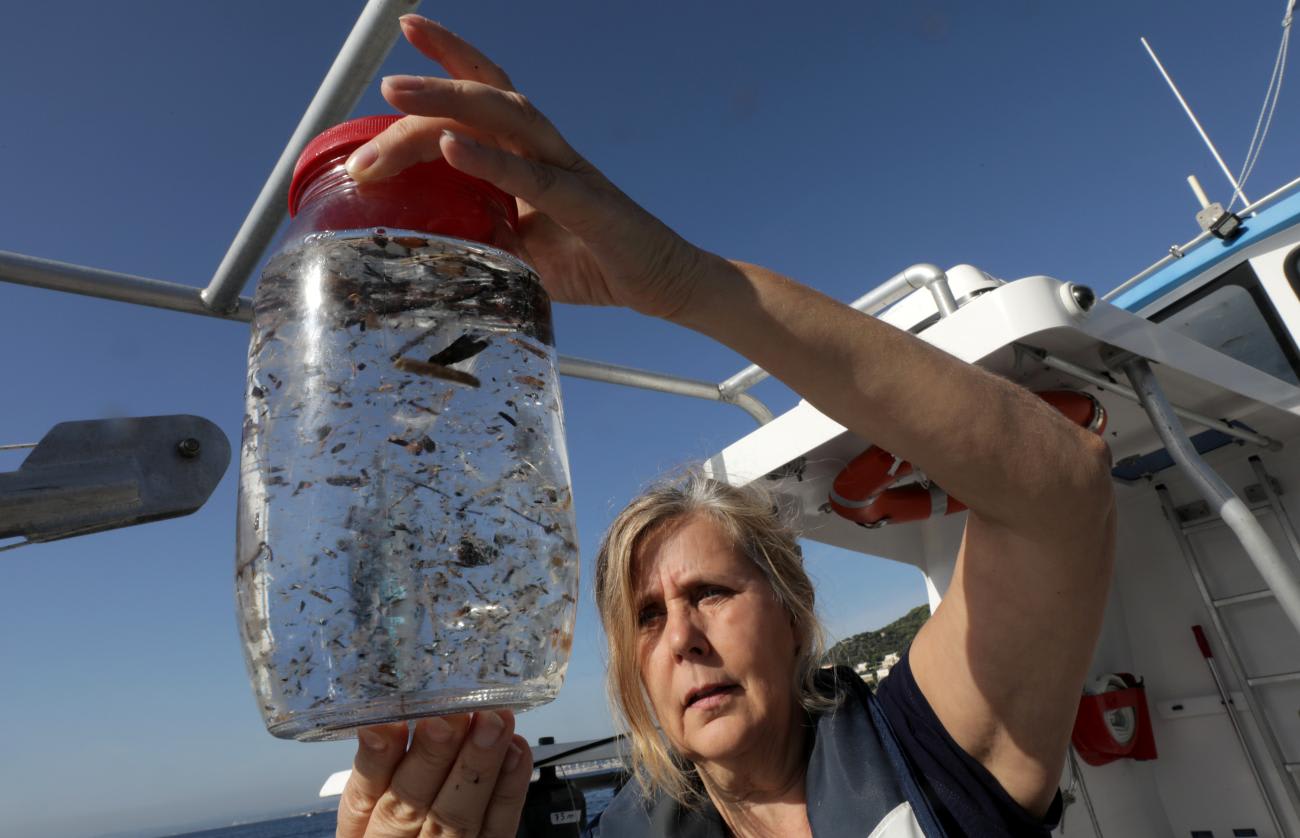
Cigarette Filters and the Treaty Opportunity
The plastic cigarette filters attached to the nearly six trillion commercial cigarettes sold globally each year are typically made of nonbiodegradable cellulose acetate. They are the main component of the most common item of trash in the world, cigarette butts.
Among the observer groups for the treaty is the Stop Tobacco Pollution Alliance, a coalition of public health and environmental organizations. The alliance advocated for eliminating single-use plastic and other types of cigarette filters altogether. Discarded plastic filters can persist in the environment for years, are a source of microplastics, and have been shown to contaminate the environment with several toxic chemicals including carcinogens, nicotine, and heavy metals produced by tobacco combustion. Laboratory and field research demonstrates that these chemicals are harmful to a wide variety of aquatic and terrestrial organisms and may even bioaccumulate in them, thus potentially entering the human food chain.
Cigarette filters are one of the most effective and fraudulent marketing gimmicks ever
Given the ubiquity of this trash and their toxicity, cigarette filters should be considered one of the most problematic plastic products under consideration for elimination. Another group led by small island developing countries, the High Ambition Coalition, called for binding provisions to restrain and reduce production of plastic polymers, including restricting unnecessary and problematic plastic polymers and plastics of concern. The plastic cigarette filter would certainly qualify as an unnecessary and problematic plastic of concern.
According the U.S. National Cancer Institute and the U.S. Surgeon General, cigarette filters have no health benefits. Instead, they are one of the most effective and fraudulent marketing gimmicks ever concocted, in that they give the false impression of making smoking safer. In fact, as smokers shifted to filtered cigarettes since their introduction in the mid-twentieth century, the risks have actually increased for a more aggressive form of lung cancer (adenocarcinoma). Cigarette filters also deposit plastic fibers in the lungs of smokers.
The majority of people who smoke and policymakers are not aware that filters are made of plastic and that they are not biodegradable. Recent research suggests that if people who smoke switch to unfiltered cigarettes, they consume fewer cigarettes per day and find smoking less satisfying. The plastics treaty provides an opportunity to mitigate an important source of microplastics and toxic waste while correcting the historic misinformation and misunderstandings attached to the plastic cigarette filter.
In summary, cigarette filters do not remove or even substantially decrease the carcinogens and other toxins inhaled by people who smoke, at least half of whom will succumb to tobacco-caused disease. Thus, continued marketing of filtered cigarettes, whether cellulose acetate or any substitute material, sustains the enormous global disease burden of tobacco use, now estimated at more than eight million preventable deaths each year. Cigarette filters should be considered toxic plastic environmental pollutants. It is entirely logical to name them as a single-use plastic of concern and a priority for elimination in the treaty. They are harmful, defective, and unnecessary; eliminating them from the commercial cigarette market will have significant public health and environmental benefits.
